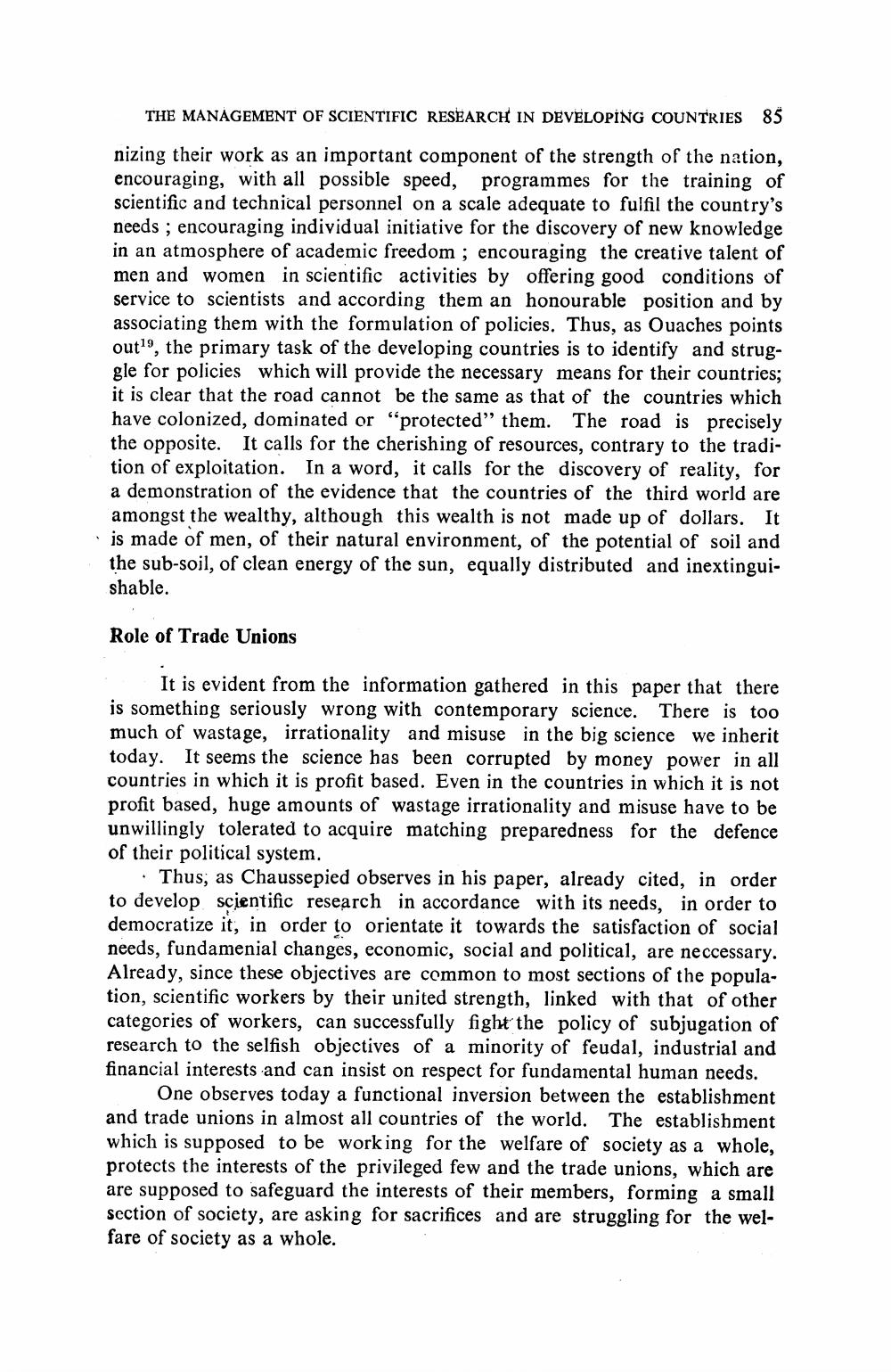________________
THE MANAGEMENT OF SCIENTIFIC RESEARCH IN DEVELOPING COUNTRIES 85
nizing their work as an important component of the strength of the nation, encouraging, with all possible speed, programmes for the training of scientific and technical personnel on a scale adequate to fulfil the country's needs; encouraging individual initiative for the discovery of new knowledge in an atmosphere of academic freedom; encouraging the creative talent of men and women in scientific activities by offering good conditions of service to scientists and according them an honourable position and by associating them with the formulation of policies. Thus, as Ouaches points out19, the primary task of the developing countries is to identify and struggle for policies which will provide the necessary means for their countries; it is clear that the road cannot be the same as that of the countries which have colonized, dominated or "protected" them. The road is precisely the opposite. It calls for the cherishing of resources, contrary to the tradition of exploitation. In a word, it calls for the discovery of reality, for a demonstration of the evidence that the countries of the third world are amongst the wealthy, although this wealth is not made up of dollars. It is made of men, of their natural environment, of the potential of soil and the sub-soil, of clean energy of the sun, equally distributed and inextinguishable.
Role of Trade Unions
It is evident from the information gathered in this paper that there is something seriously wrong with contemporary science. There is too much of wastage, irrationality and misuse in the big science we inherit today. It seems the science has been corrupted by money power in all countries in which it is profit based. Even in the countries in which it is not profit based, huge amounts of wastage irrationality and misuse have to be unwillingly tolerated to acquire matching preparedness for the defence of their political system.
Thus, as Chaussepied observes in his paper, already cited, in order to develop scientific research in accordance with its needs, in order to democratize it, in order to orientate it towards the satisfaction of social needs, fundamenial changes, economic, social and political, are neccessary. Already, since these objectives are common to most sections of the population, scientific workers by their united strength, linked with that of other categories of workers, can successfully fight the policy of subjugation of research to the selfish objectives of a minority of feudal, industrial and financial interests and can insist on respect for fundamental human needs.
One observes today a functional inversion between the establishment and trade unions in almost all countries of the world. The establishment which is supposed to be working for the welfare of society as a whole, protects the interests of the privileged few and the trade unions, which are are supposed to safeguard the interests of their members, forming a small section of society, are asking for sacrifices and are struggling for the welfare of society as a whole.




